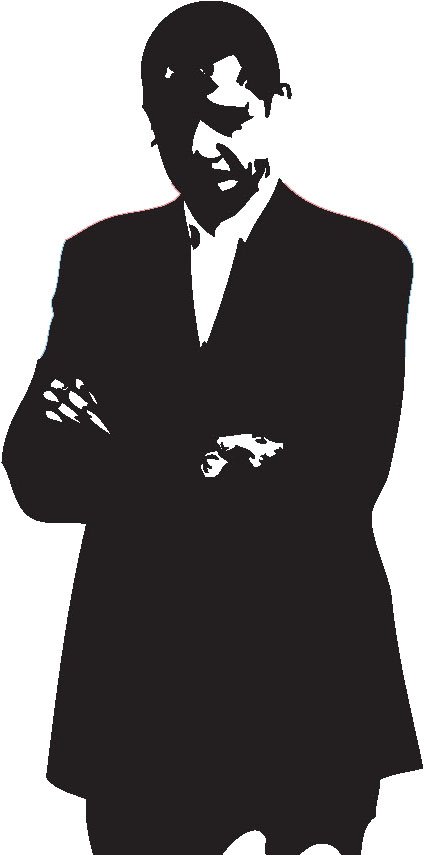 Recently I had the opportunity to accompany two labor union leaders from my country, Mexico, to meet with high-level officials of the Obama Labor Department. The meeting was an example of the kind of new U.S.-Latin America relations that so many hoped would come from an Obama presidency.
Recently I had the opportunity to accompany two labor union leaders from my country, Mexico, to meet with high-level officials of the Obama Labor Department. The meeting was an example of the kind of new U.S.-Latin America relations that so many hoped would come from an Obama presidency.
The workers had come to Washington to draw attention to labor rights violations stemming from the Mexican government’s authoritarian elimination of a state-owned company that cost 44,000 workers their jobs, as part of a move to privatize electricity distribution. They received a respectful hearing when they presented a complaint under NAFTA’s Labor Side Agreement. Labor Secretary Hilda Solis is expected to raise their case at an upcoming ministerial summit with her Mexican and Canadian counterparts.
Unfortunately, however, the Obama Labor Department’s fresh approach and openness to the views of Latin American social movements is not the norm in other key agencies. In fact, one year into the president’s term, it’s hard to find many other concrete examples of meaningful change in U.S.-Latin American relations.
Before Obama’s debut at a Latin America summit in April last year, the Institute for Policy Studies gathered valuable advice for the new U.S. president from a wide range of the region’s civil society leaders. They urged him to remove the U.S. military presence from the region and respect the sovereign right of other countries to pursue their own paths; to overhaul failed trade policies that have hurt working families and the environment; to help promote sustainable development in impoverished countries; and to cooperate with other Latin American countries to save the planet from environmental disaster.
These leaders offered their advice in a spirit of great hopefulness that was encouraged by Obama’s statements on the campaign trail. His platform A New Partnership for the Americas laid out a vision that looked much more like President Franklin Roosevelt’s Good Neighbor Policy than the Monroe doctrine of U.S. dominance. Obama recognized then that “it’s time for a new alliance of the Americas,” and that given the “eight years of failed policies of the past, we need a new leadership for the future.”
Obama reiterated many of these themes in his speech at the summit. Immediately afterwards, however, his officials started backpedaling on some of his key campaign promises. For example, U.S. Trade Representative Ron Kirk announced, one day after the end of the summit, that the U.S. administration would not reopen the North American Free Trade Agreement and would seek congressional approval of trade agreements negotiated by the Bush administration.
Businessmen and conservative politicians in the other two NAFTA countries applauded the decision. But civil society organizations and other political representatives in the three countries, pointing to rising unemployment levels and rising inequality as a product of free trade, deeply lamented Obama’s renewed support for the unaltered free-trade agreements.
In fact, the Obama administration has continued to espouse President George W. Bush’s Pathways to Prosperity in the Americas. The United States forged this agreement with 13 countries, all of them signatories to U.S. free-trade agreements. The stated goal is to encourage cooperation to “extend the benefits of free trade.” The thinly veiled objective is to commit countries in the hemisphere to the course of corporate-friendly deregulation while driving a wedge between those that have adopted this U.S.-driven approach and those that have been pursuing alternative economic paths.
Another sign that the Obama administration would take a hard approach to Latin American leaders outside the Pathways to Prosperity in the Americas pack came when it decided to continue to deny trade preferences for Bolivia. The Bush administration had disqualified that country from a special Andean trade program, based on bogus allegations of noncooperation with the U.S. war on drugs. The move raised tariffs on some key Bolivian imports, threatening the jobs of thousands of workers.
To many Latin Americans, Obama’s move against Bolivia was a sign of continued antagonism and lack of respect toward governments in the region that have been attempting to increase their independence from the U.S. government and powerful U.S. investors.
The Obama administration also backpedalled on its promise to shut down the Guantanamo Bay detention center by the end of 2009. Obama’s gesture of allowing family travel to Cuba and eliminating some restrictions on money transfers to the island was positive, but it seems to have been a tactic to smooth over relations with Venezuelan President Hugo Chavez and other U.S. critics in advance of last year’s summit. Since then, the administration has announced that it will not put an end to the economic embargo on Cuba. Recently, after a failed terrorist attack on a U.S. airplane by a Nigerian allegedly acting on behalf of al-Qaeda, the U.S. government put Cubans on the no-fly-list for terrorist countries.
Obama also deserves poor marks for the ultimate failure of his administration’s efforts to support democracy in Honduras, as explained by Mark Engler. While Obama himself condemned the coup, the administration ended up supporting the November 29 presidential elections in that country even when president Manuel Zelaya remained ousted during the process.
Most Latin Americans — aside from the upper class — hope that Obama will start fighting in his second year for fair trade that benefits working people everywhere, real democratic governance based on sovereign decisions by the people, and removal of U.S.-led militarization of the region. However, the way ahead to mend relations is still long, and skepticism is growing.
